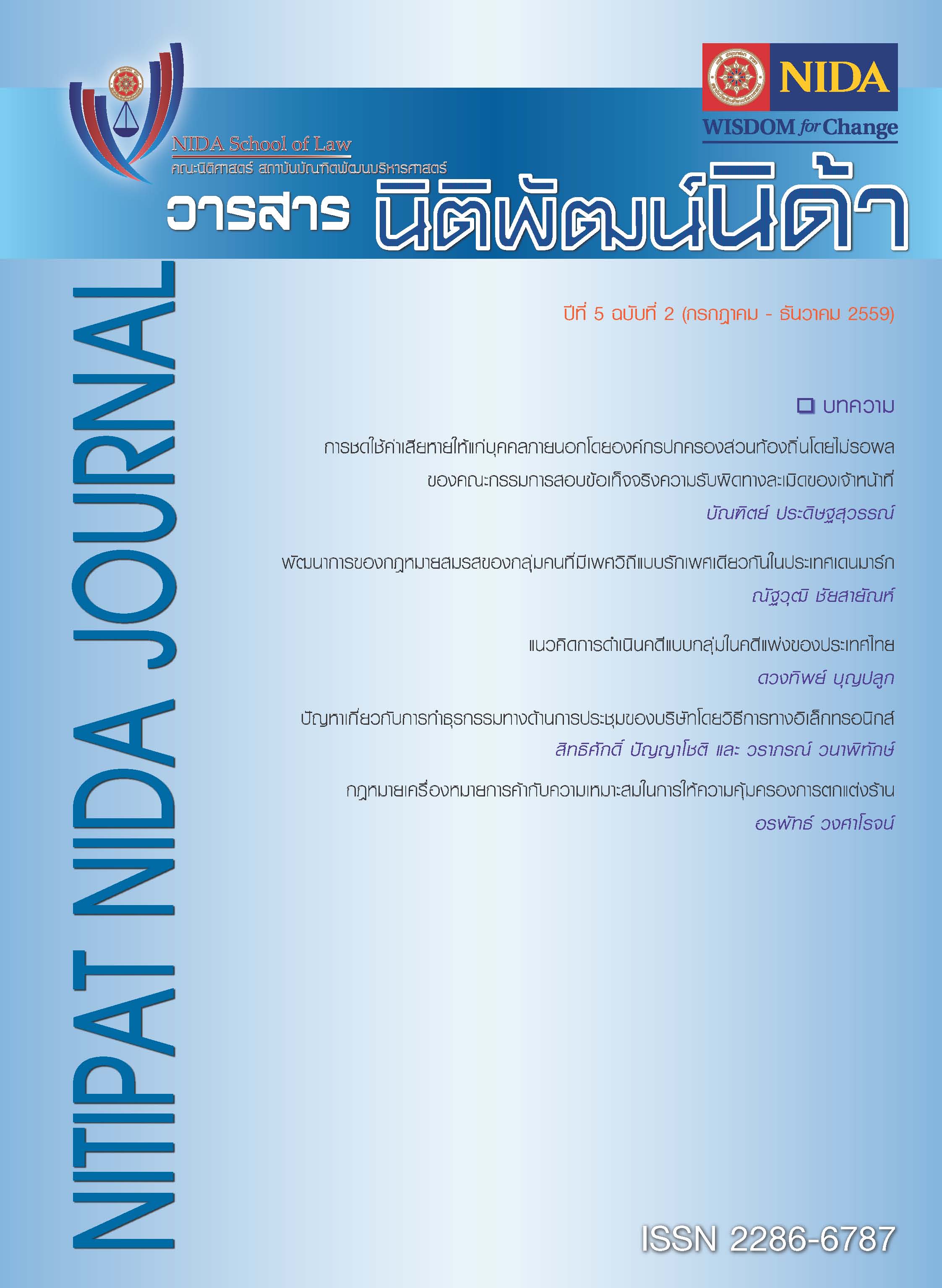Domestic laws in relation to the foreign direct investment in the manufacture of automotive parts in Thailand
Keywords:
Foreign direct investment (FDI), Tax incentives, Legal interpretation, Automative parts manufacturingAbstract
Foreign direct investment (FDI) is an important factor in the development of economic system in
Thailand. As part of the FDI promotion policy, tax incentives greatly attract foreign investors.
Nonetheless, one of the main obstables to the promotion of FDIs in Thailand concerns the problem
of domestic laws being interpreted differently by different government agencies. Such conflicting legal
interpretation affects many businesses, particularly the automotive parts manufacturing, which is one
of the biggest industries in the country. This article studies 3 issues, namely (1) the definition of
“foreigner” used for the consideration of business capacity and the right to own land; (2) the
interpretation of “toll manufacturing”; and (3) the process of applying for various factory licences
depending on the location of the factory. The article aims to raise the government’s awareness of
the promotion of FDIs and to propose some solutions to the problem.
References
www.aic.or.th/about-us/ประวัติอุตสาหกรรมยานยนต์ไทย/ย้อนรอย-5-ทศวรรษ/ทศวรรษที่-5-
ประกาศคณะกรรมการส่งเสริมการลงทุนที่ 2/2557 เรื่อง นโยบายและหลักเกณฑ์การส่งเสริมการลงทุน
ประมวลกฎหมายที่ดิน
พระราชบัญญัติการนิคมอุตสาหกรรม พ.ศ. 2522
พระราชบัญญัติการประกอบธุรกิจของคนต่างด้าว พ.ศ. 2542
พระราชบัญญัติโรงงาน พ.ศ. 2535
พระราชบัญญัติส่งเสริมการลงทุน พ.ศ. 2520
ระเบียบสำนักนายกรัฐมนตรี ว่าด้วยการจัดตั้งศูนย์บริการวีซ่าและใบอนุญาตทำงาน (ฉบับที่ 3) พ.ศ. 2544
Grantham, R. and Rickett, C. (1998). The Bootmaker’s Legacy to Company Law Doctrine (pp. 1-10). In
Grantham, R. and Rickett, C. (eds.). Corporate Personality in the 20th Century. West Sussex:
Hart Publishing.
Nuchpiam, P. (2016). A Comparative Study of Legal Forms for Social Enterprises in the UK and Thailand.
DPhil thesis, Durham University



